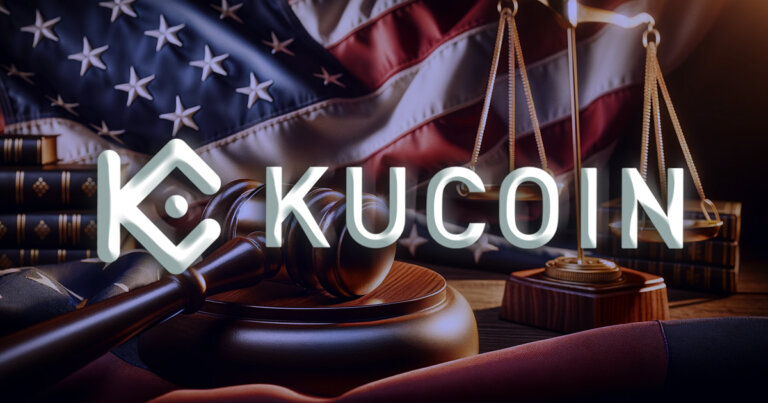 KuCoin assures users funds are safe after US levies criminal charges
KuCoin assures users funds are safe after US levies criminal charges KuCoin assures users funds are safe after US levies criminal charges
The indictment accuses KuCoin and its founders of bypassing the Bank Secrecy Act and operating an unlicensed money-transmitting business.

Cover art/illustration via CryptoSlate. Image includes combined content which may include AI-generated content.
KuCoin CEO Johnny Lyu said the US criminal charges against the exchange will not affect the platform’s operational stability and assured users that their funds remain safe.
Lyu made the statement on social media after the US Department of Justice (DOJ) announced it is levying criminal charges against the exchange for flouting anti-money laundering (AML) laws.
Lyu said:
“Your assets are safe and sound with us. Our team and I will provide timely updates about the progress.”
KuCoin also made an official statement regarding the allegations and said its lawyers are investigating the details. The exchange similarly assured users that funds are “absolutely safe.”
Criminal Charges
The US Attorney’s Office for the Southern District of New York announced the indictment of KuCoin — along with its founders Chun Gan (known as Michael) and Ke Tang (known as Eric) — on charges of operating without the necessary legal permissions and failing to adhere to AML laws on March 26.
The indictment accuses the platform and its founders of bypassing the Bank Secrecy Act and operating an unlicensed money-transmitting business.
US Attorney Damian Williams — who is leading the case — outlined the charges, stating that KuCoin and its founders allegedly avoided US regulatory measures despite having a substantial user base in the country.
The indictment criticizes KuCoin for not implementing essential AML policies, which purportedly allowed the transfer of over $9 billion in suspicious and illicit funds through the exchange.
The document also points out KuCoin’s late adoption of customer identification measures, which came into effect in July 2023 after the initiation of a federal investigation and did not retroactively apply to existing customers, including those in the US.
Additionally, the indictment alleges that KuCoin made efforts to conceal the presence of US customers on its platform and misrepresented this information to investors. The exchange is accused of promoting itself on social media as a platform where US users could trade anonymously.
Meanwhile, the charges against the exchange’s two founders include conspiring to operate an unlicensed money-transmitting business and to violate the Bank Secrecy Act, with potential maximum sentences of five years in prison for each charge.
KuCoin and its related entities face several charges, the most severe of which is a potential ten-year prison sentence for a substantive violation of the Bank Secrecy Act.
Crypto commodities
The indictment notably mentions that KuCoin violated the Commodity Exchange Act (CEA) by failing to register with the CFTC despite allowing users to trade commodities on its platform.
According to the filing:
“Bitcoin and other cryptocurrencies are “commodities” under the CEA.”
The filing does not specify the other cryptocurrencies and only mentions Bitcoin in relation to the CFTC complaint. However, the indictment does mention Ethereum in a different section that describes KuCoin’s spot trading activity.
DeFi Education Fund board member Jake Chervinsky noted that the accompanying CFTC complaint against KuCoin specifically labels three cryptocurrencies as commodities — Bitcoin, Ethereum, and Litecoin.
The inclusion of ETH in the CFTC complaint is significant, considering recent rumors that the SEC is investigating the Ethereum Foundation to try and label it a security.
Chervinsky believes the inclusion implies the CFTC is directly challenging the SEC’s approach to investigating Ethereum and other digital assets. This development represents a notable departure from the usually discreet stance the agencies have taken in their jurisdictional overlap concerning crypto.
According to Chervinsky:
“This may seem minor, but is actually pretty savage interagency drama by DC standards.”





























































